12/8/2014 - High Tea In The Rose Room And A Walk In The Gardens


Thanks to Brian, Sue & Paul were here!!!
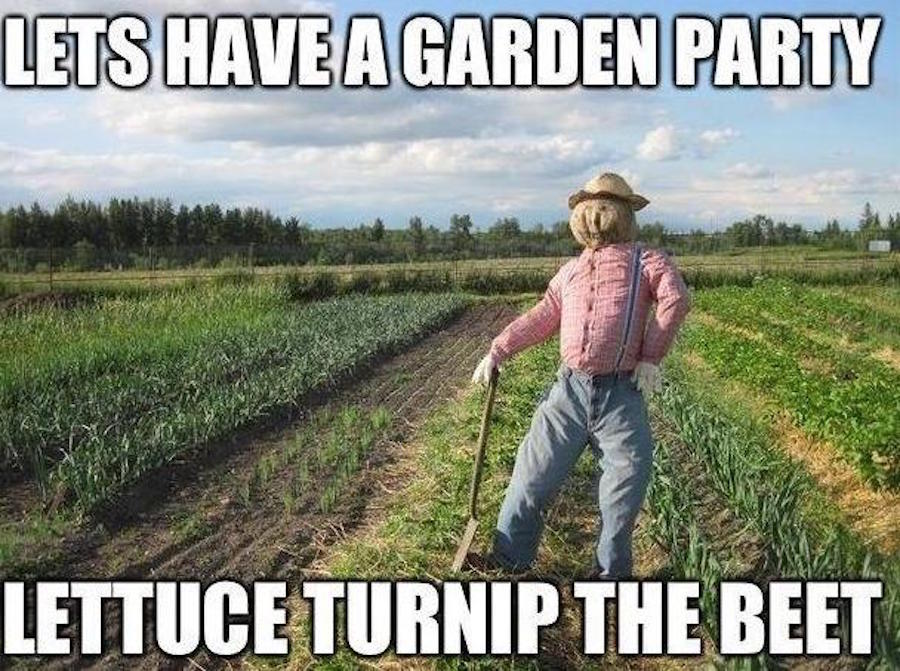
Tea Time

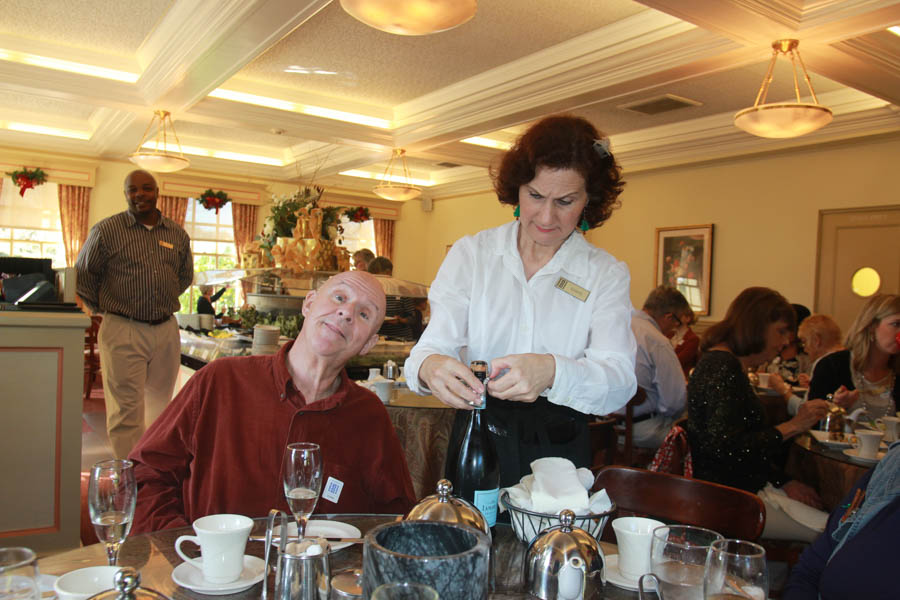
Kimberly opens the champagne... Greg swoons

"Pardon me sir but do you have your ID with you??"
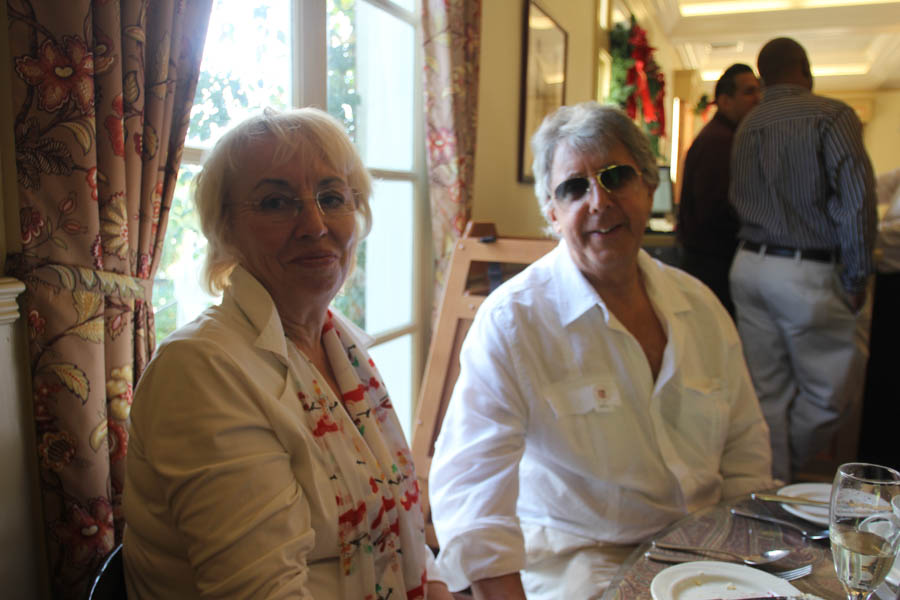
"We need to buy her glasses.... ID? Greg is older than dirt!"

Carri is getting a kick out of this

Thanks Brian for having us join the party

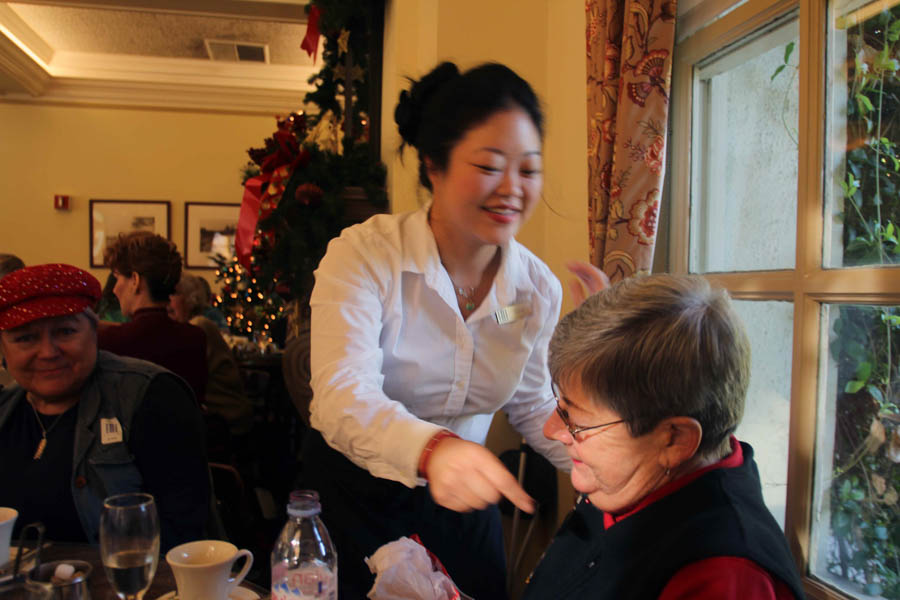
Joanna was happy to see us

"Earl Grey" is a Black Tea
Did You Know? - Black tea is a type of tea that is more oxidized than oolong, green and white teas. All four types are made from leaves of the shrub (or small tree) Camellia sinensis. Black tea is generally stronger in flavor than the less oxidized teas.
Two principal varieties of the species are used – the small-leaved Chinese variety plant (C. sinensis subsp. sinensis), used for most other types of teas, and the large-leaved Assamese plant (C. sinensis subsp. assamica), which was traditionally mainly used for black tea, although in recent years some green and white have been produced.
In Chinese languages and the languages of neighboring countries, black tea is known as "red tea" (Japanese 紅茶 kōcha; Korean 홍차 hongcha, Bengali Lal cha), a description of the colour of the liquid; the Western term "black tea" refers to the colour of the oxidized leaves.
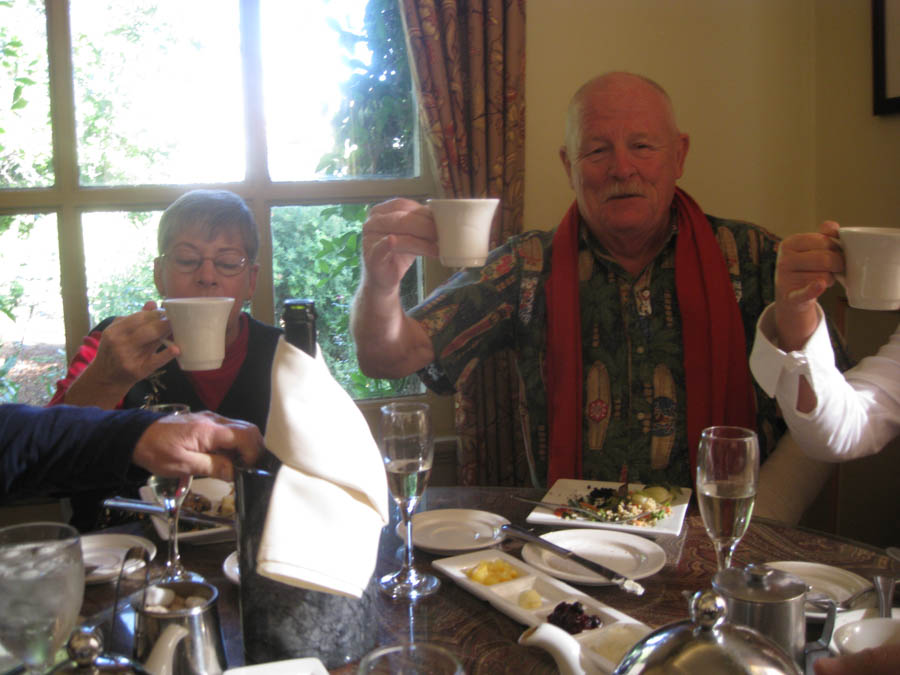
Pinky finger up

Clink!

Herbal tea here
Did You Know? - Herbal tea, or tisane (UK /tɪˈzæn/, US /tɪˈzɑːn/), is any beverage made from the infusion or decoction of herbs, spices, or other plant material in hot water, and usually does not contain caffeine.
These drinks are distinguished from caffeinated true teas (black, green, white, yellow, oolong, etc., which are prepared from the cured leaves of the tea plant, Camellia sinensis), as well as from decaffeinated tea, in which the caffeine has been removed. In addition to serving as a beverage, many herbal teas are also consumed for their perceived medicinal benefits.

"Pinky finger up is a wives tale... In the UK we grab and squeeze the tea cup"

"What do you mean I can only go back two more times?"

"I have fresh scones for you all"
Did You Know? - The pronunciation of the word within the United Kingdom varies. According to one academic study, two-thirds of the British population pronounce it /ˈskɒn/ with the preference rising to 99% in the Scottish population. This is also the pronunciation of Australians, Canadians and New Zealanders.
Others, particularly inhabitants of the United States and Ireland, pronounce the word as /ˈskoʊn/. The pronunciation /ˈskʊn/ is also used, particularly in Ireland. British dictionaries usually show the "con" form as the preferred pronunciation, while recognising that the "cone" form also exists.
The Oxford English Dictionary reports that the first mention of the word was in 1513. Origin of the word scone is obscure and may, in fact, derive from different sources.
That is, the classic Scottish scone which, according to Sheila MacNiven Cameron in The Highlander's Cookbook, originated as a bannock cut into pieces; and the Dutch schoonbrood or "spoonbread" (very similar to the drop scone); and possibly other, similar and similarly named quick breads, may have made their way onto the British tea table, where their similar names merged into one.
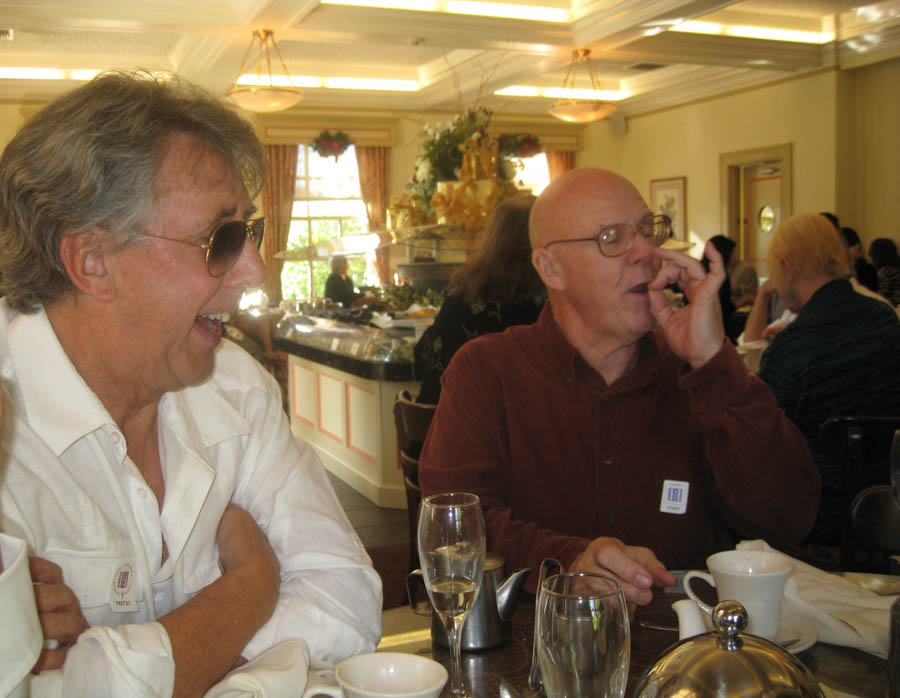
Greg is really enjoying the Earl Grey

Giggle time
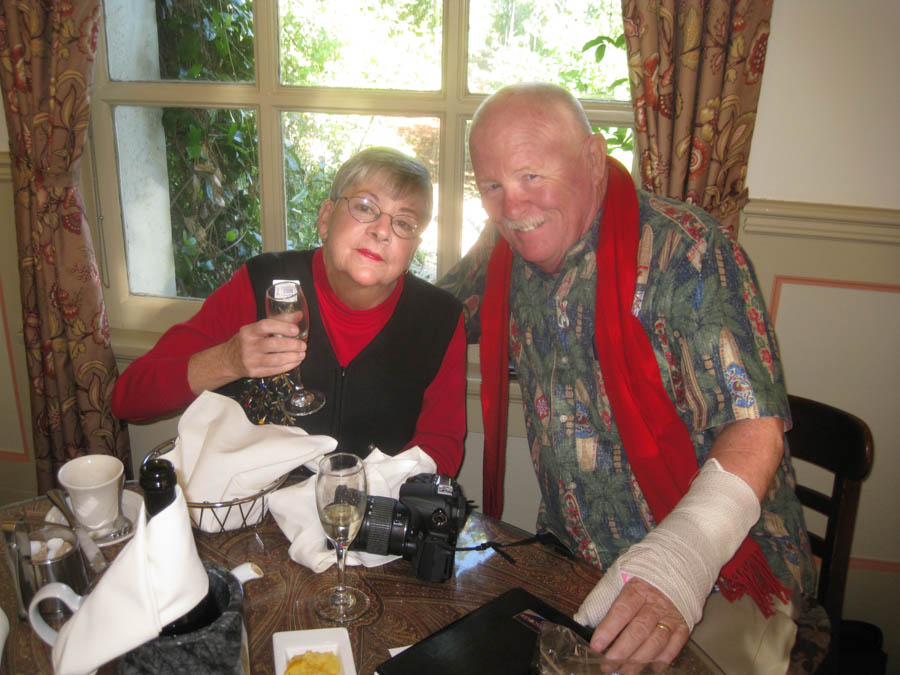
"Hello... We are here thanks to Brian"
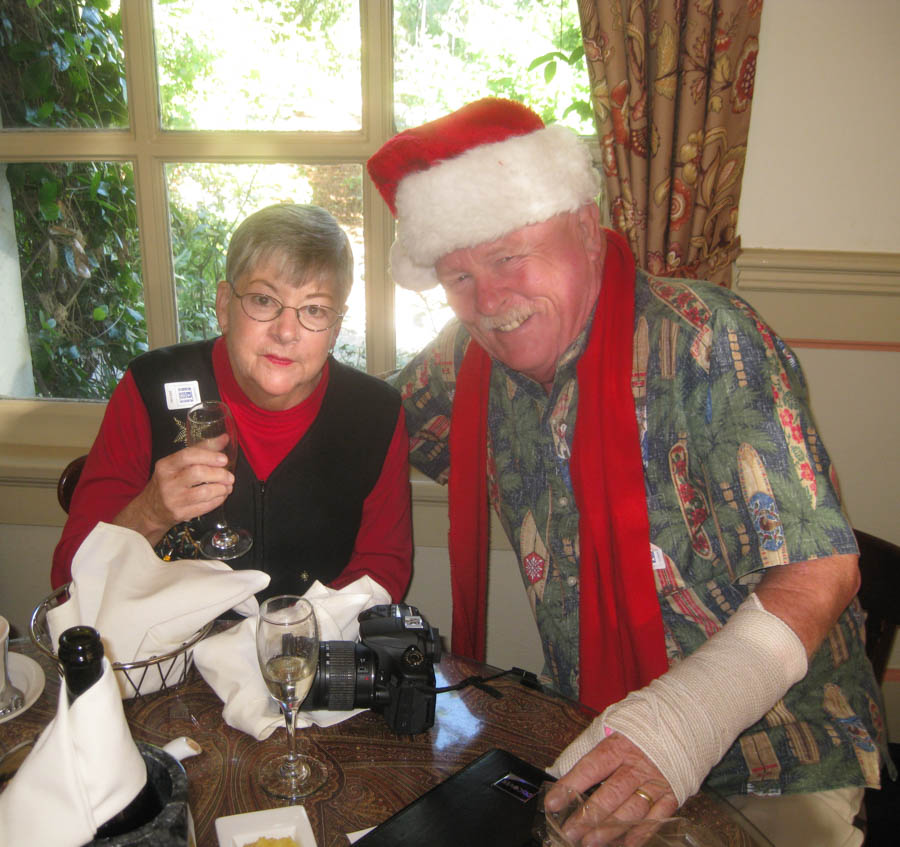
Decorated for Christmas


This is a snappy happy group

Joanna was at the helm of the camera

Merry Christmas Joanna
 Greg keeps us all in stitches
Greg keeps us all in stitches
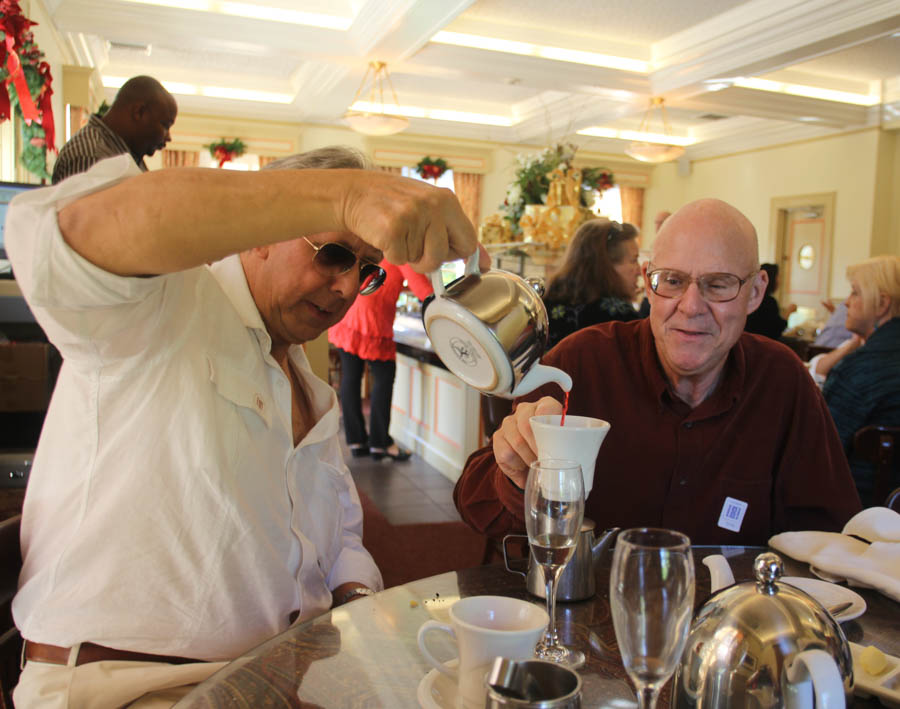
Brian wanted to see the color of herbal tea... Bright red today

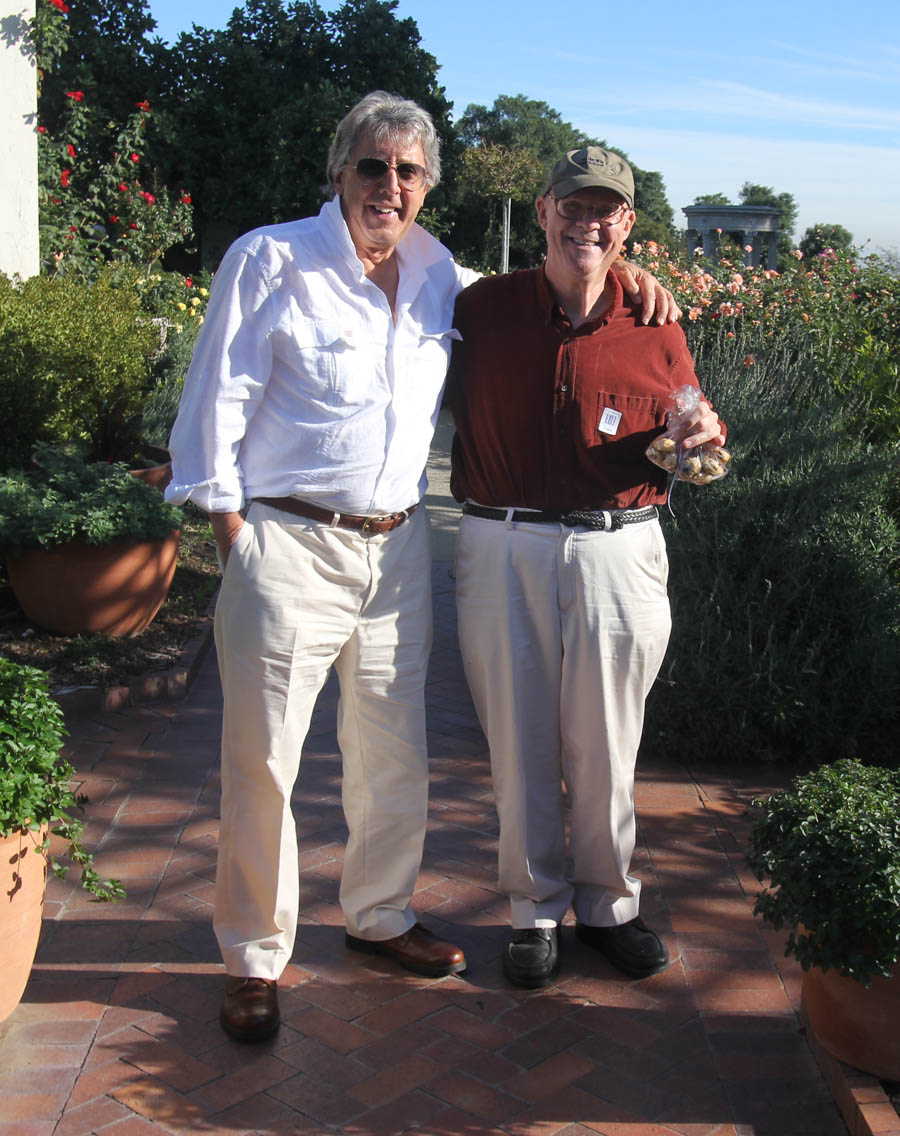
Gentlemen... Start your engines
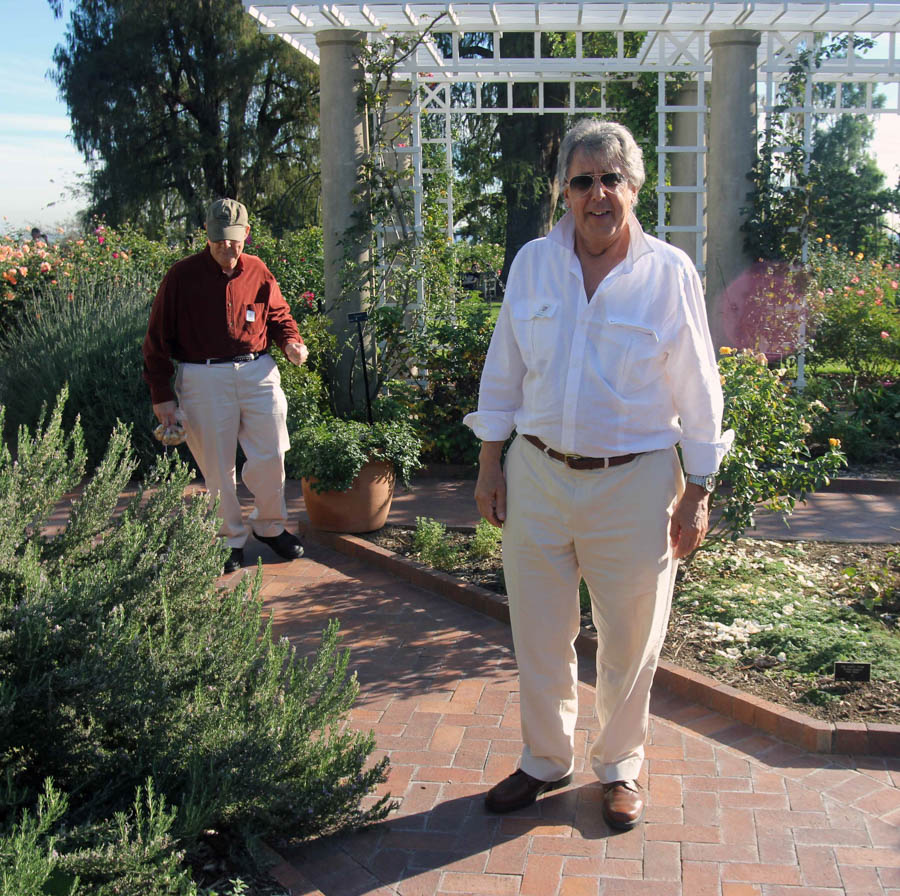
Brian learns how to pinch-squeeze-smell the various oily plants
Did You Know? - Mints are aromatic, almost exclusively perennial, rarely annual, herbs. They have wide-spreading underground and overground stolons and erect, square, branched stems.
They are fast-growing, extending their reach along surfaces through a network of runners. Due to their speedy growth, one plant of each desired mint, along with a little care, will provide more than enough mint for home use.
Some mint species are more invasive than others. Even with the less invasive mints, care should be taken when mixing any mint with any other plants, lest the mint take over. To control mints in an open environment, they should be planted in deep, bottomless containers sunk in the ground, or planted above ground in tubs and barrels.

The ladies are not far behind

Look very different in the winter

One of Sue's favorite gardens because it is food/cooking related

Brian is squeezing everything now


On our way
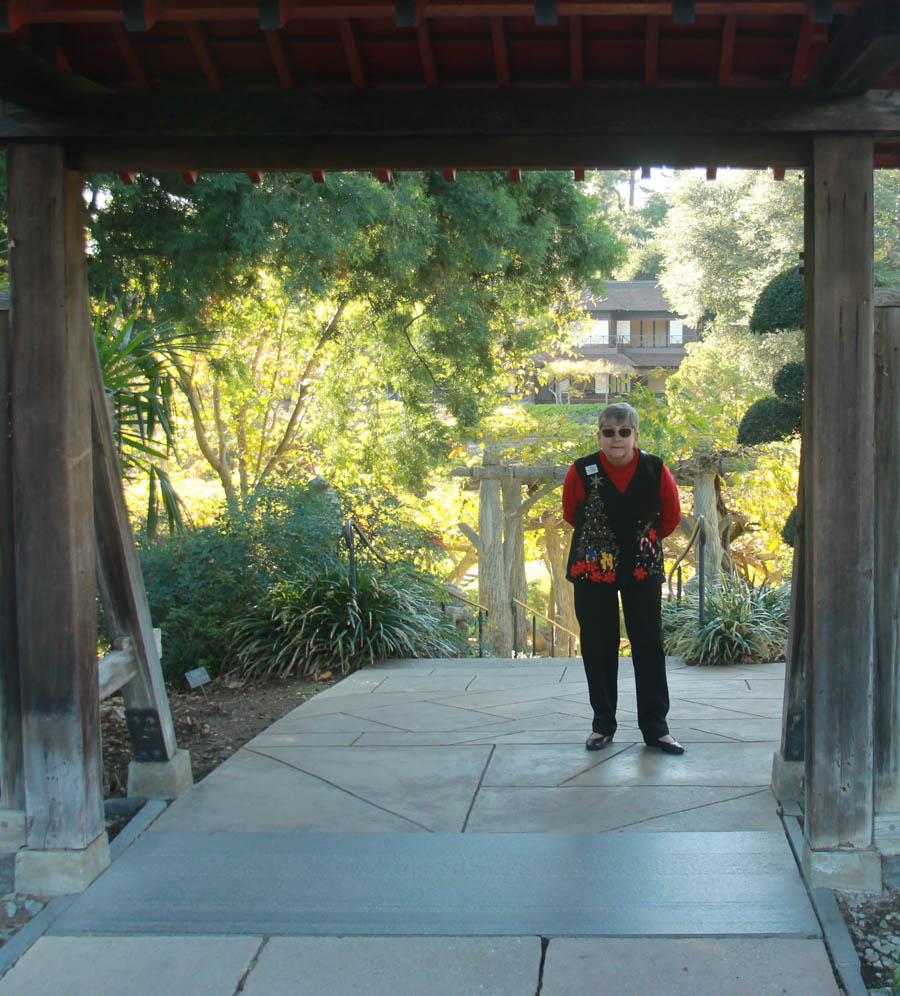
"Follow me"

"Pet me... I do not bite"

It was a beautiful winter day is California... Just 77 degrees

We wore warm clothes but really did not need to!

We had to check...

Imported from China

Looks like a woodpecker went wild
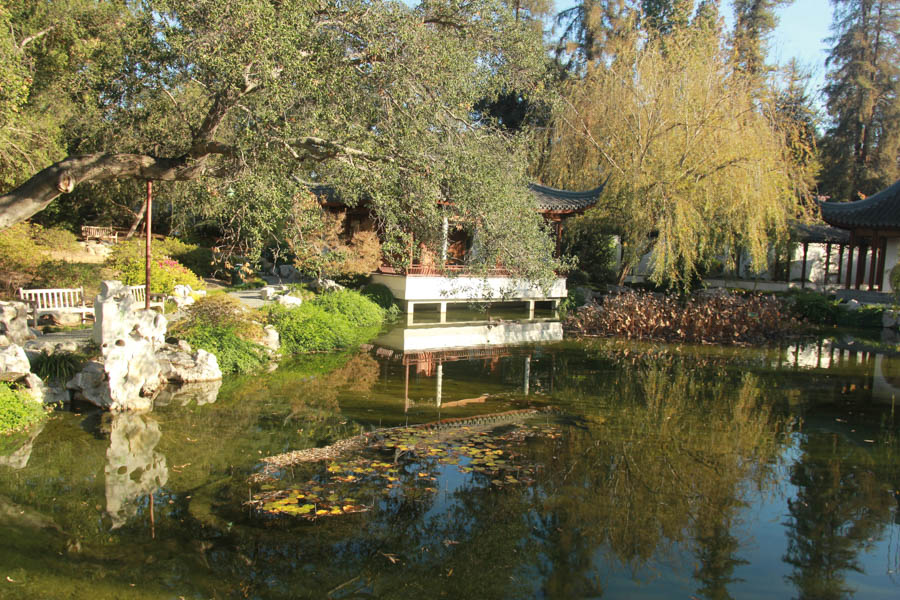
Everything was beautiful

On our way to the Japanese Garden


A view from the Rose Garden looking west into the Japanese Gardens
Did You Know? - For over a century, the historic Japanese Garden has been one of the most beloved and iconic landscapes at The Huntington, with its distinctive moon bridge, picture-postcard views of koi-filled ponds and the historic Japanese House. Since the institution opened to the public in 1928, the Japanese Garden, has attracted more than 20 million visitors and remains a site of both fascination and contemplation.
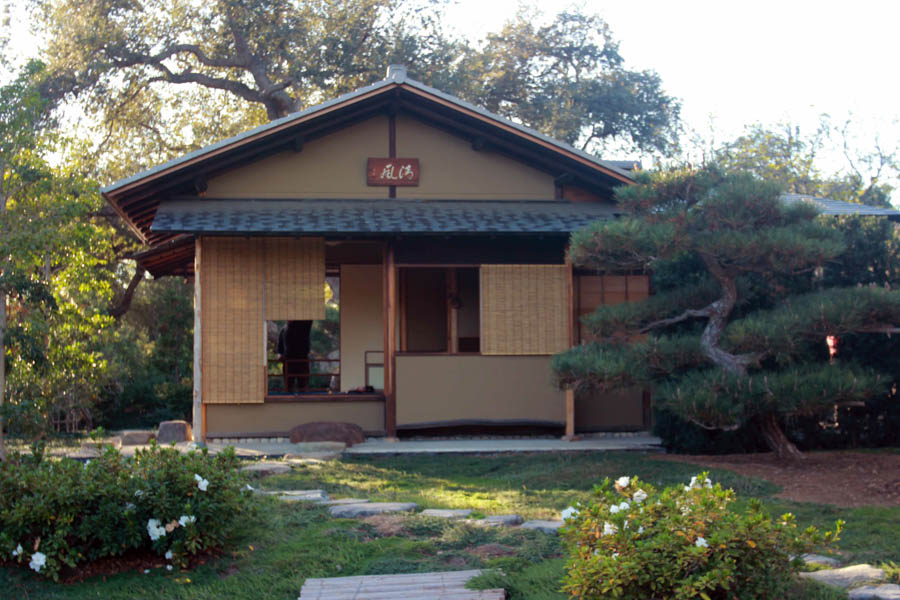
The Tea House was open today

Brian enjoyed the Bonsai
Did You Know? - Bonsai means plantings in tray, or low-sided pot is a Japanese art form using miniature trees grown in containers. Similar practices exist in other cultures, including the Chinese tradition of penjing from which the art originated, and the miniature living landscapes of Vietnamese hòn non bộ. The Japanese tradition dates back over a thousand years, and has its own aesthetics and terminology.
The practice of bonsai is sometimes confused with dwarfing, but dwarfing generally refers to research, discovery, or creation of plant cultivars that are permanent, genetic miniatures of existing species. Bonsai does not require genetically dwarfed trees, but rather depends on growing small trees from regular stock and seeds. Bonsai uses cultivation techniques like pruning, root reduction, potting, defoliation, and grafting to produce small trees that mimic the shape and style of mature, full-size trees.

Admiring the plants... They are amazing

Needs a hair cut
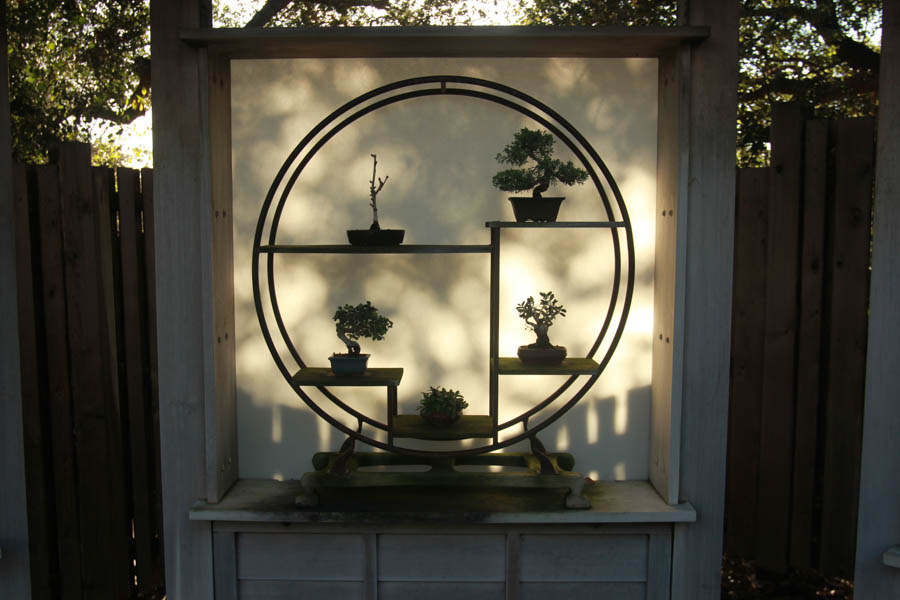
Interesting with the sun in the background
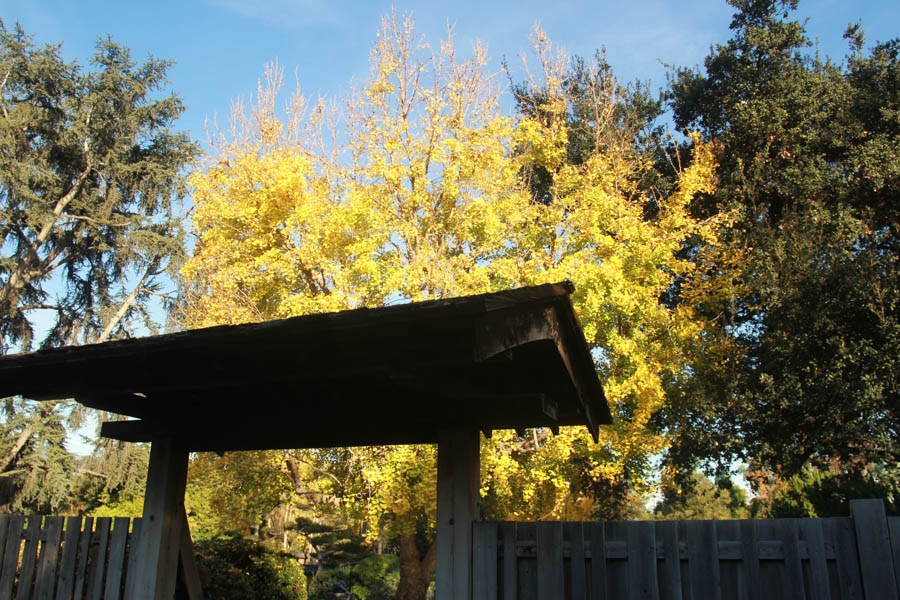
Ginko trees are loosing their leaves

The ground was gold...
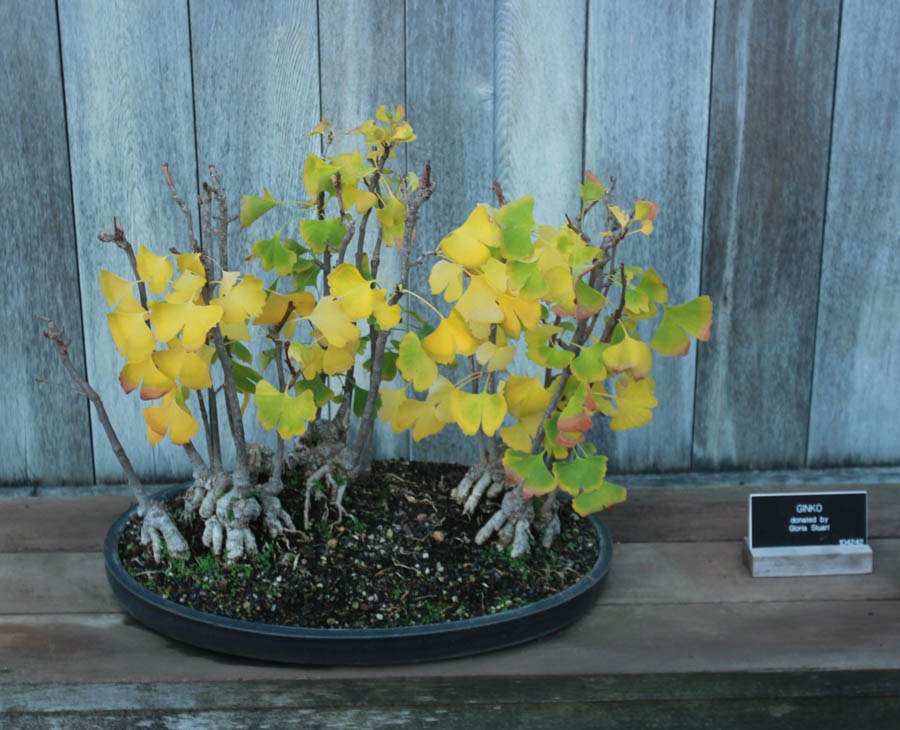
A bonsai ginko tree...

Tiny to large... Ginko's seem to be adaptable

It is silently shouting "It's Winter Time"

So very relaxing to sit and watch

Thank you Brian...
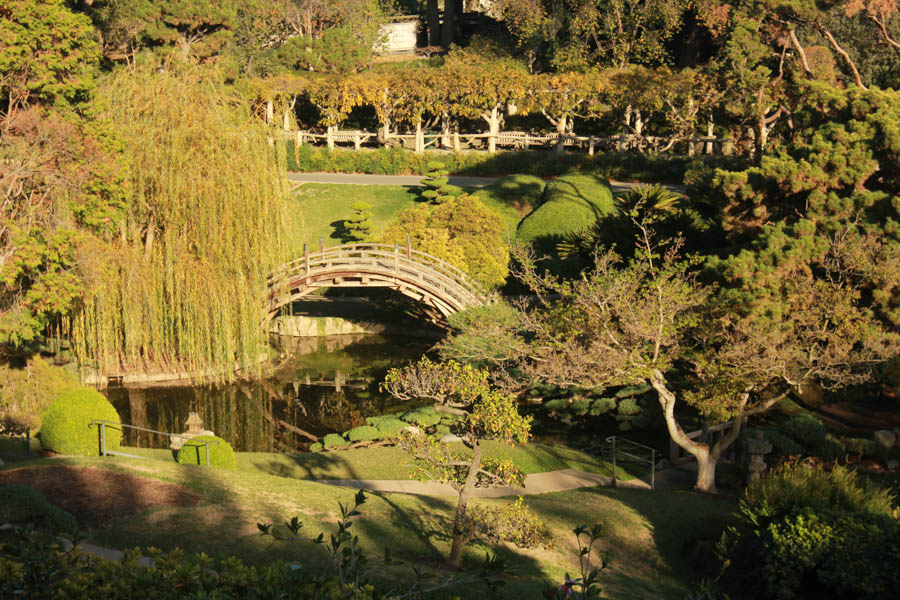
A warm California winter afternoon

Brian was going to wear shorts but it would have scared the wildlife

Fun in the gardens

Checkout the reflections


"Paul... Were you teasing about the alligators in these ponds?
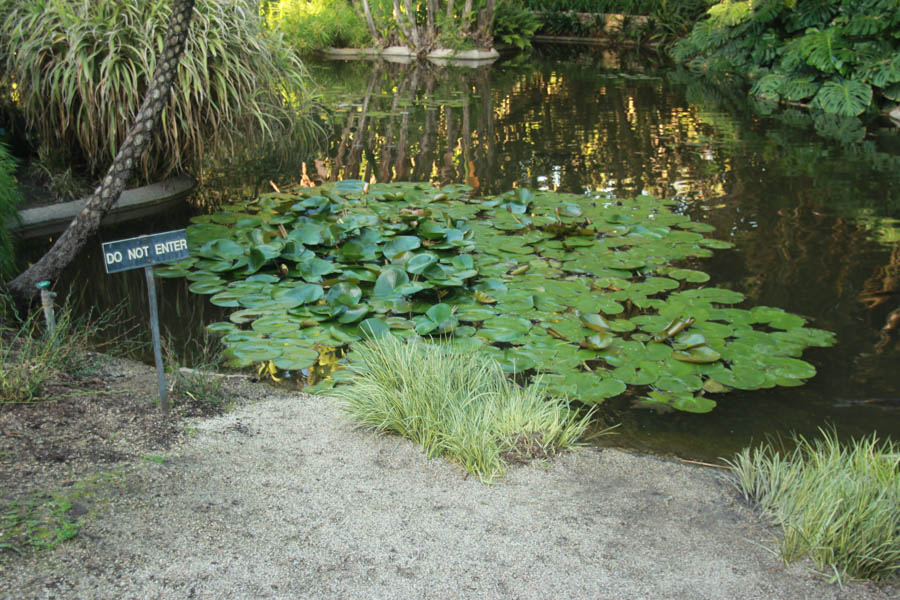
The sign is there to protect the wild animals


The barrel cactus were happy... It rained last week
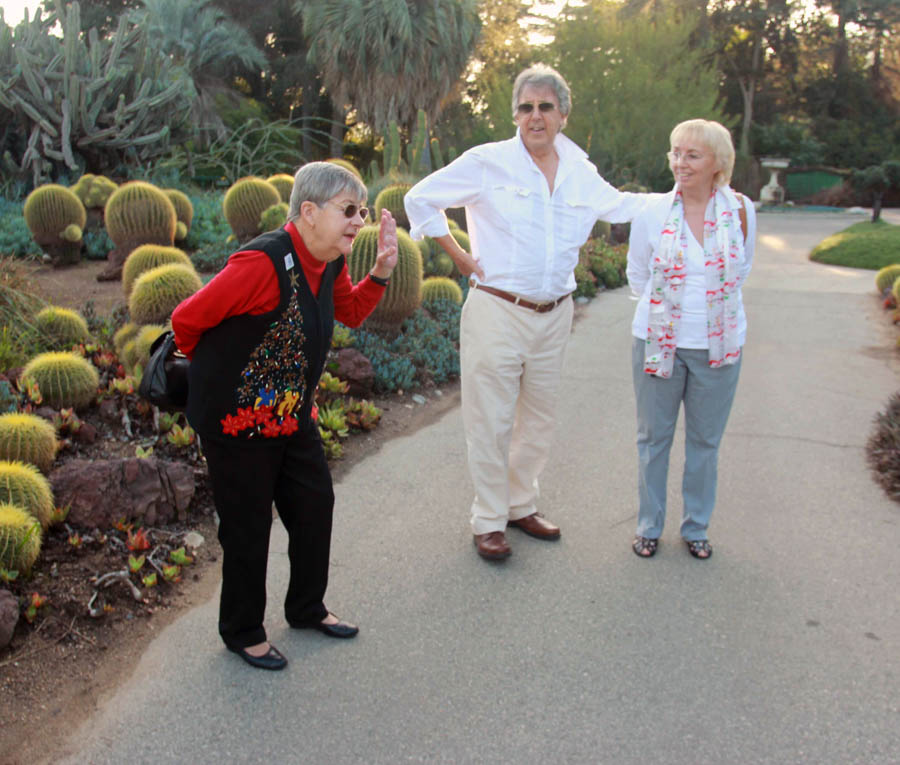
"I am guilty!"

"Follow me"

Tiny blossoms were hidden on the various cacti
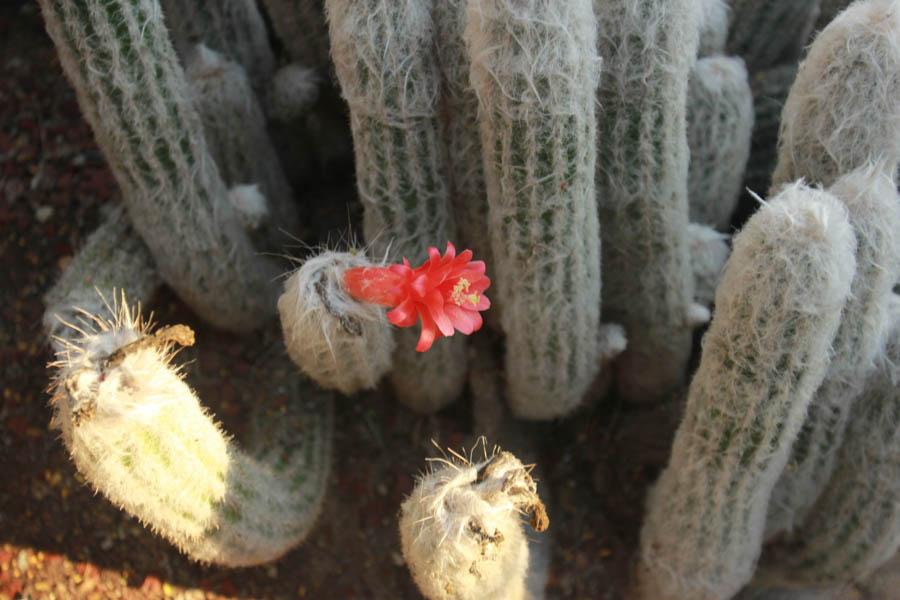
The desert is beautiful
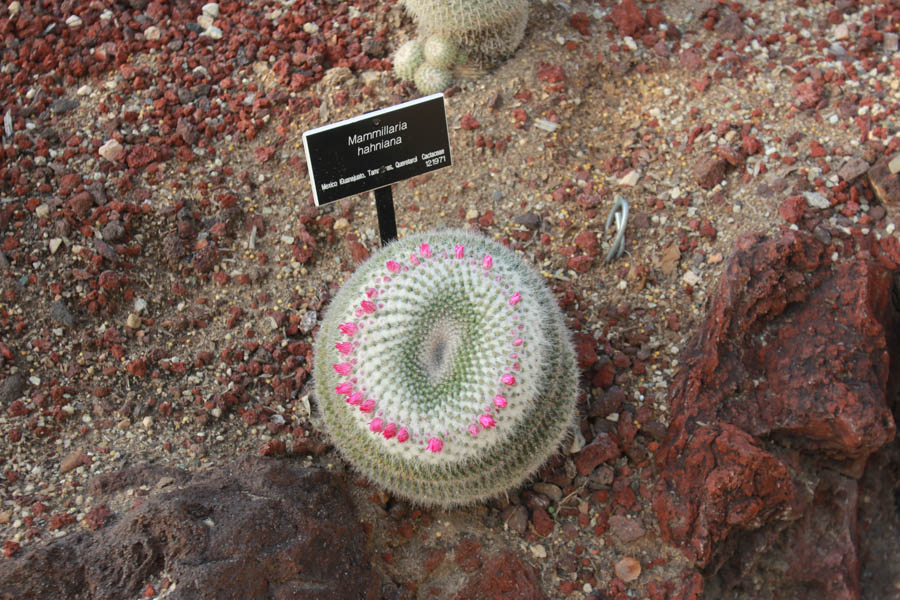
Mother nature is quite artistic

They look like grapes but they are NOT grapes...

Greg and Carri await our arrival


Brain could not turn down the $5.00 "All You Can Eat" buffet

Paul & Greg

Clink

